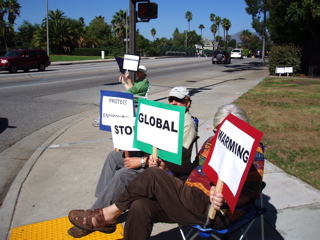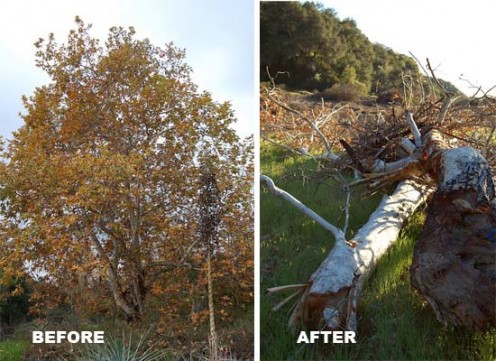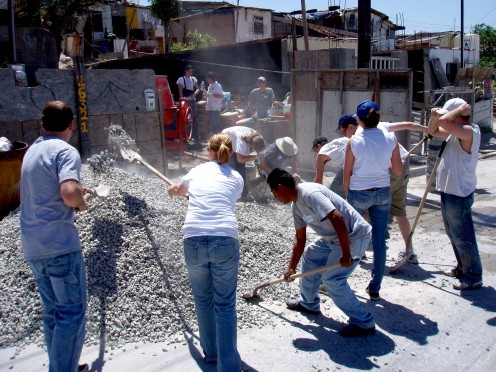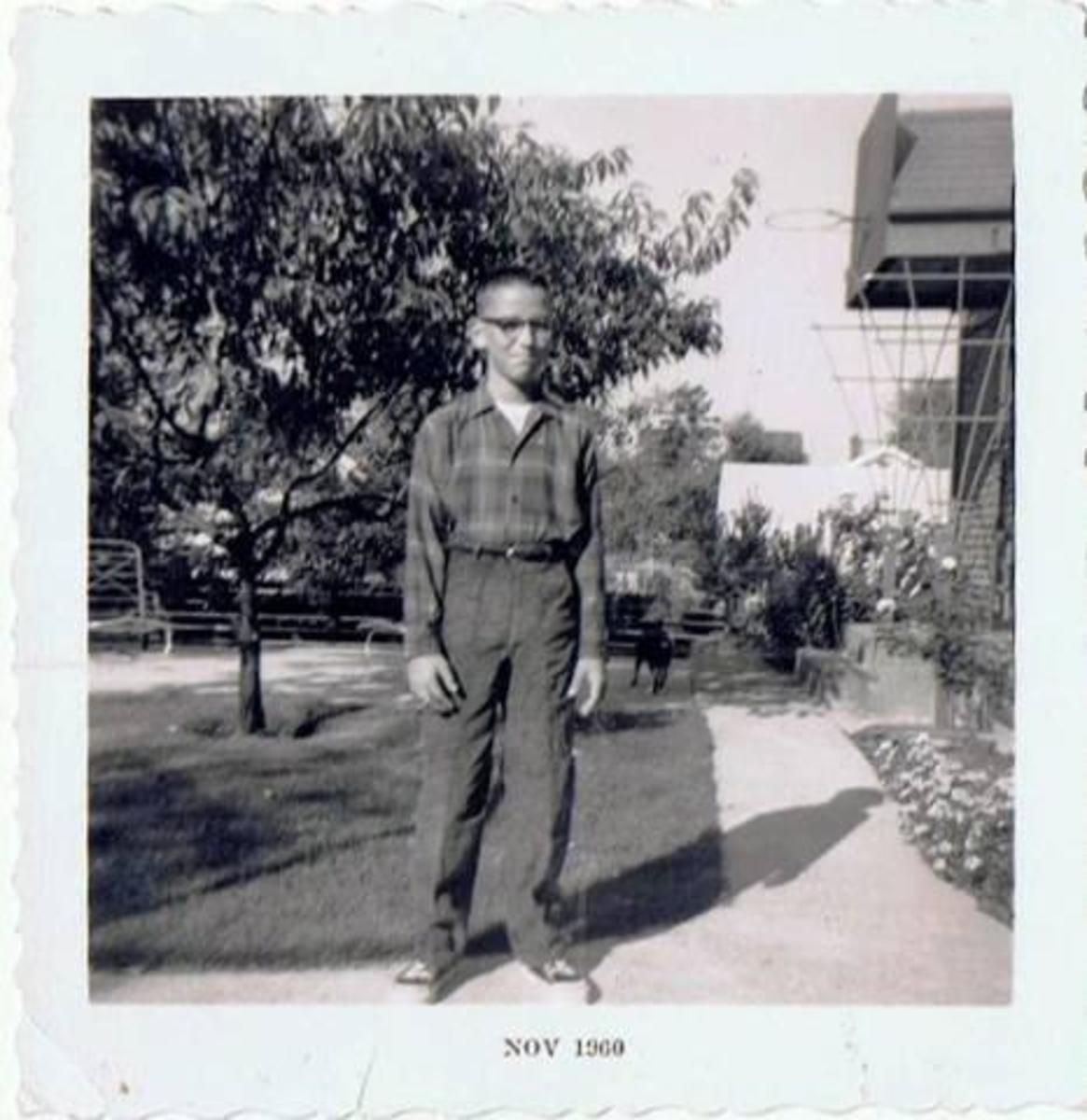How to be a Sensitive Political Protester
As political activists, we're bound to get flak for our beliefs and our need to speak out about them. In a sense, it makes sense, since we are giving out flak ourselves. But there must be a way to speak out about things we see needing change that generates respect from and action by others. I believe there is, but first let's look at what flak really is, where we get it from, and how we deal with it.

Governments Protesting the Protester
The issues we choose to speak up about are often status quo practices that hurt certain members or classes of our population - sometimes just locally, sometimes worldwide. They can be health issues that are being ignored or exploited, like AIDS or cancer. They can be social issues like abortion, drugs, or over-population of prisons. They can be economic issues like white collar thievery or high government debt. They can be political issues like climate change legislation, education, or electioneering. Or they can be ecological (life-threatening) like drought, hurricanes, or giant oil spills.
Each of these issues have become issues because someone or group of people was exploiting the public, not noticing and/or caring, and the government was not carrying out its protective duties.
In a democracy the populace watches out for how their world is being affected by government and business, and speaks up when they feel threatened or see the well-being of others threatened. They will always get flak as soon as those who benefit from insensitive practices realize that they could be stopped.

In many cases the government itself is the culprit. In a rush to carry out a certain task, they see only one side of a project and break their own protective laws in the process.
And so the Department of Public Works sneaks bulldozers into an eleven-acre site of native California oaks and sycamores (protected trees), and pays workers overtime to work day and night destroying and shredding the trees to make way for a dirt dump. Then they have the police arrest those few who knew enough to try to stop them, ensure the bail is set high, and discredit the activists' purpose for protesting. Our job as fellow activists is to protect those who are getting flack for speaking out, make sure the county's aggression backfires, and somehow prevent them from doing it again.

Flak From Family & Friends - Be Sensitive
This kind of flak is much harder to deal with, especially for newbie activists. It's personal, can be hurtful, and so is usually much more effective at shutting up the protester.
That's the purpose of flak, of course - to stop the protest. If I am speaking out against the country's response to the attacks of 9/11 and the subsequent war in Iraq, while my brother works for the Navy, I can expect to get flak from him. If I am upset with how banks are merging right and left, taking over and annihilating smaller banks, creating monopolies that were once illegal, while another family member is benefiting from those mergers, I can expect to get flak (and did). If I discover how much healthier people could be by eating properly and using herbs instead of drugs, yet I have friends who've become dependent upon drugs, I will definitely get flak and may lose friends, too.
The hardest part about this kind of flack is that it comes from people we love - people we want to respect and care for us, be accepted by, and feel safe with. But it you think about it, they want the same things from us. And the way we speak out makes all the difference.
Most people take things personally. If we are harsh with the provokers of situations such as these, without thinking about the potential effect on our family and friends, certain ones will feel our attacks are directed at them. Their subsequent mockery or discrediting of our beliefs are really self-defenses. They are giving back the attack they perceived we gave them. So being an activist around family and friends is something we have to be really careful about.

How Do Political Activists Deal With Flak?
The most common and often instinctive reactions to receiving flak are defensiveness and withdrawal. Either we argue back, or we just shut our mouths and walk away stewing and/or feeling hurt. Some activists try to persuade, but that usually falls short, unless . . . they are smart enough to start out saying, "This is not personal."
"This is not personal. I see too many people being hurt by this issue, including you, and that concerns me. Yes, I know it's your business and could be considered to not be mine, but what am I to do? When I see so much evil coming from this and growing day by day, must I wait until it attacks me, personally, before I join with others to try to stop it?" (I was never smart enough to say this, by the way.)
In the case of my brother, who mocked me about thinking the Iraq war was all about oil, I carefully prepared a statement of belief, including a few links, and emailed it to him with assurances that I was not intending to argue with him, but just wanted to share my point of view. Then I waited, kept doing my political work without talking with him anymore about it, and watched events prove me out. Now he agrees, but as his own choice, not from me pushing him into it.
In the case of flak coming from the public (e.g. rabid individuals or groups discrediting anything that opposes what they believe religiously), it's very important to find support. Don't be quite as visible about your beliefs until you have found others who share them. Then look for solutions.

Be a Political Problem-Solver
The myth that unethical institutions try to portray is that activists are only interested in complaining, not in really solving the problems. And sometimes that's true. So make sure you are one who wants the problems that you are addressing solved, and see what you can do to help solve them.
- Think and act constructively. Look for solutions.
- Join (or start) a group to work actively on the issue.
- Let your political representatives know how important the issue is, what you're doing about it, and what you hope they will do about it.
- Write to the perpetrator (if different from the government) with the same information.
- Write letters to the media to let the public know too.
- Put together a video illustrating the problem and potential solutions and share it on YouTube.
- Use a petition website to gather signatures of protest to send to the perpetrator/s.
Then if the perpetrator still perpetuates the wrongdoing, you have proof of their lack of caring about the results of their actions. Suddenly the issue takes on a whole new dimension, and you will have the support of many, many more people. Flak that is directed at you, personally, will be easier to deal with, because you did something constructive and you have protective support.








